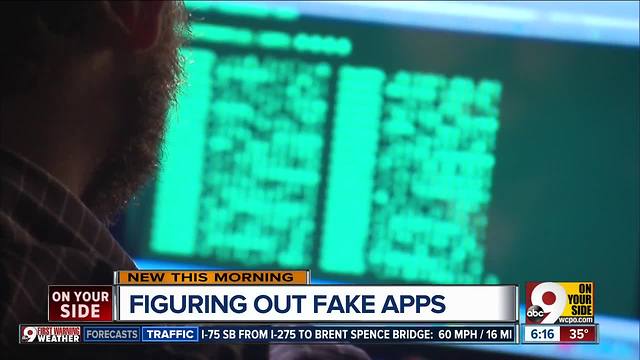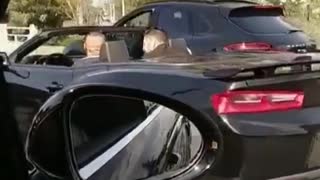Premium Only Content

Malware is disguising itself as your favorite apps
You know how every time Disney releases a new movie, misbegotten doppelgangers inevitably follow? It's doubtful that the fourth-rate studios behind Braver, Ratatoing and Snow Queen really expect customers to enjoy what they've put out -- they just expect us to be tired and gullible enough to fork over the cash for a close-enough product. In the age of the smartphone, popular apps experience a similar epidemic of low-rent copycats, but these can present a bigger danger than the loss of $15. Many fakes have the same titles as their legitimate counterparts, so the only way to tell whether you're downloading the correct version is to check for minute differences in spelling, presentation and developer information. "They're designed to get you to click on it, download it without paying attention," University of Cincinnati journalism professor Jeff Blevins said. More than 1 million people downloaded a fake WhatsApp this year before cluing in to their mistake, according to Motherboard. Copycat apps don't usually expect unsuspecting downloaders to pay with money, Blevins said -- just with unfettered access to the device that they use for an increasing number of daily tasks. You might not think twice about giving Snapchat access to your camera and microphone or Emoji access to your keyboard, and those might be sound decisions if you've downloaded the correct app. If you haven't, however, you could be in trouble. "(Malware) can take control, it can send text messages, it can take pictures of you … it's really dangerous when that happens," he said. His advice for that scenario: Shut off your phone and restore it from factory settings. It might take a while to get all of your music and photos back on your phone, but it's better than finding out your little helper was watching you while you thought it was sleeping.
-
 0:16
0:16
WCPO
2 years agoPerson Drowns at nature preserve
541 -
 0:15
0:15
Alex_Boord
4 years ago $0.19 earnedPony your favorite pony
248 -
 4:55
4:55
RenzoRants
4 years ago $0.24 earnedYour Favorite President!
5201 -
 0:45
0:45
Community Fun
4 years agoWho is your favorite Fortnite Character?
108 -
 0:41
0:41
WXYZ
5 years agoWhat's your favorite temperature?
45 -
 1:33
1:33
NowYouKnowEnglish
4 years ago3 Fabulous Ways To Style Your Favorite Skirts
3.47K -
 3:59
3:59
Paul_Mikhin
5 years agoCongratulations on your favorite birthday!))
51 -
 0:14
0:14
ABDRAHIM
5 years agoWhat is your favorite car type?
761 -
 5:48
5:48
WTMJMilwaukee
4 years agoEnjoying Your Favorite Fall Eats While Staying Fit!
23 -
 1:19
1:19
WFTS
5 years agoWhat's Good Tampa Bay? | Share your favorite family photos!
23